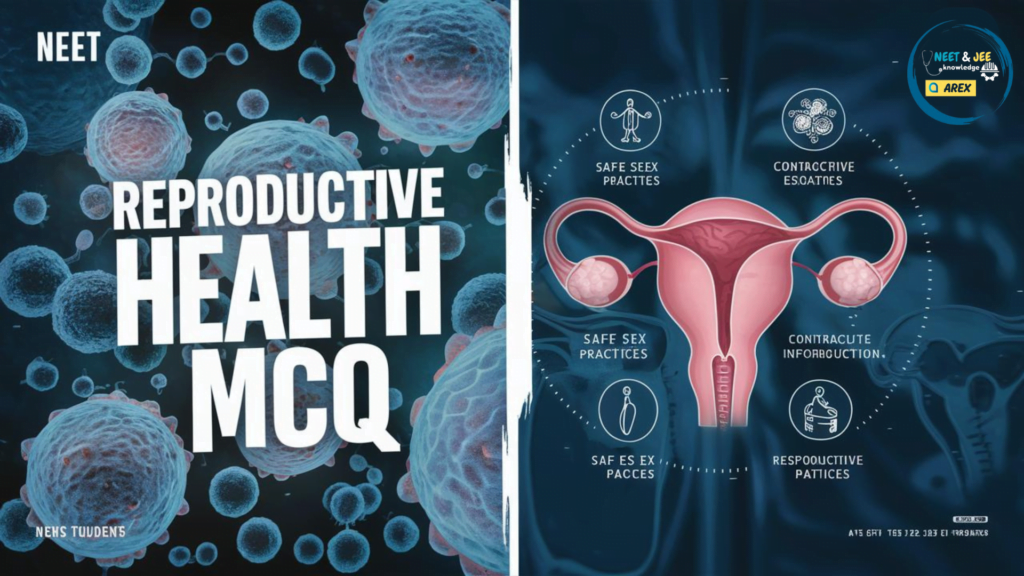
Reproductive Health NEET Questions
Reproductive health contains the well-being of the reproductive systems and their functions throughout an individual’s life. It includes aspects such as sexual health, fertility, pregnancy and the prevention and treatment of reproductive system disorders. For NEET students, understanding reproductive health is important as it involves knowledge of human anatomy and physiology, including the structure and function of reproductive organs, hormonal regulation and the mechanisms of conception and contraception.
Moreover, reproductive health education emphasizes the importance of preventive care, such as regular screenings and vaccinations, to protect against sexually transmitted infections (STIs) and other reproductive health issues. A complete understanding of these concepts is essential for addressing health issues and promoting overall well-being in both individuals and populations.
| NEET 2025 Exam Important Links | |
|---|---|
| NEET 2025 Updated Syllabus | NEET Eligibility Criteria 2025 |
| Biology Preparation | Chemistry NEET Preparation |
| NEET Preparation tips for 2025 | NEET Result 2024 |
Reproductive Health NEET Questions
Reproductive health is an important topic in the NEET syllabus as it forms an integral part of understanding human biology and anatomy. It encompasses the study of the reproductive systems, their functions and the various health issues associated with them.
Moreover, reproductive health education equips students with the ability to understand and interpret clinical scenarios related to reproductive disorders and diseases. Topics such as contraception, sexually transmitted infections and reproductive health policies are relevant for a holistic understanding of human health.
Reproductive Health NEET Questions
Enhance your preparation with Arexiq’s Mock Test Series where we provide solutions to various MCQs like we provide in this post “Reproductive Health NEET MCQ”. Our expert teachers explain the concepts thoroughly, making it easy for you to understand. We offer many types of questions ensuring a clear grasp of concepts.
FAQs about Reproductive Health
- What is reproductive health?
Answer. Reproductive health refers to the state of physical, mental and social well-being in all matters relating to the reproductive system. It includes the ability to have a responsible, satisfying and safe sex life, as well as the capability to reproduce and the freedom to decide if, when, and how often to do so.
- Why is reproductive health important for NEET students?
Answer. Understanding reproductive health is important for NEET students as it helps in gaining a complete knowledge of human biology, which is essential for the NEET exam.
- What are the key topics related to reproductive health in NEET syllabus?
Answer. The key topics include:
- Anatomy and physiology of the reproductive systems (both male and female).
- Menstrual cycle and its regulation.
- Human reproduction and associated processes.
- Contraception and family planning methods.
- Sexually transmitted infections (STIs) and their prevention.
- How does the menstrual cycle impact reproductive health?
Answer. The menstrual cycle is a vital aspect of female reproductive health, involving hormonal changes that regulate ovulation and menstruation. Understanding the cycle is essential for recognizing normal reproductive function and identifying potential health issues.


